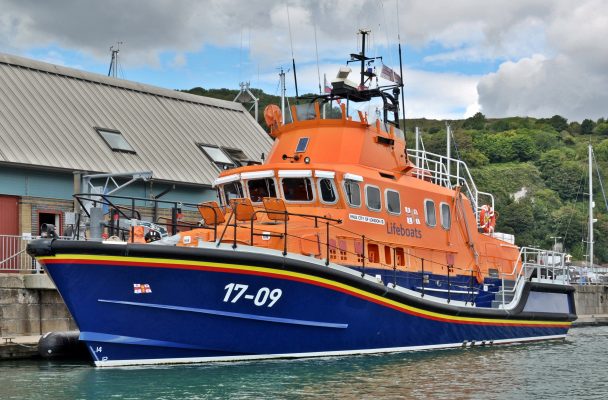Kent Police say a massive multi-agency search for a missing woman in Folkstone could have finished earlier if she had told the emergency services she was safe and well
It was one of the largest and longest search operations in Kent in recent years.
Police, UK Coastguard and RNLI crews spent hours searching the land and sea around Folkstone, after a woman dialled 999 to report that she had fallen on rocks and was injured.
Now Kent Police say the seven hour search could have ended a lot earlier had the woman let the emergency services know that she had managed to make her own way to safety.
In a statement, the force said: “Officers searching for a woman who reported to be in difficulty on the seafront near Wear Bay Road, Folkestone have completed the search and ascertained the woman is now safe and well.”
“Enquiries have established the woman had managed to leave the area safely but had not updated the emergency services. Officers would like to thank all those who assisted with the search.”
Members of the public are also calling for the woman to be charged for the cost of the operation or make a “hefty RNLI donation”.
RNLI crews joined forces with the UK Coastguard just after 1530 on 11 December 2016 following the 999 call.
By approximately 1600, Dover RNLI’s Severn class all-weather lifeboat was searching from Folkestone Harbour towards Samphire Hoe alongside the Coastguard helicopter and teams along the shore.
With no sightings of the woman by 1800, the UK Coastguard requested Littlestone-on-Sea RNLI’s Atlantic 75 inshore lifeboat to join the search amid concerns for the woman’s welfare.
At its peak, an estimated 100 volunteers and emergency service personnel were involved in the search, which ended around 2230.
Commenting on the shout, the duty coxswain for Dover RNLI, Robert Bendhiaf, said: “Sunday evening was one of the longest and largest multi-agency search and rescue operations in our area in recent years; it was a great opportunity to work together and put all our training to use.”
“At one point we had a total of three lifeboats searching which included our inshore inflatable “Y-boat” to get in close to the rocks, Littlestone RNLI’s Atlantic 75 searching inshore and within Folkestone Harbour and our Severn class lifeboat searching further offshore and the outer harbour,” he continued.
“White parachute flares were used to illuminate the area to aid searching when the helicopter left the scene to re-fuel,” he explained.
Dover RNLI press officer, Ed Baker, added: “Around 190 people die each year along our coasts, roughly half of those are due to accidental slips, trips and falls.”
“We’d like to take this opportunity to remind the public to respect the water, during the winter months more than ever with falling light and colder temperatures it makes search and rescue efforts and survival much tougher. Visit www.respectthewater.com for safety advice,” he advised.
The announcement that the search could have ended sooner prompted comment on social media.
Writing on the Kent Online News Facebook page, Kate Meredith posted: “My husband was on RNLI Littlestone crew tasked to this last night. At one point he swam to shore to check an area of beach inaccessible to boats.”
“He returned home cold and hungry just before midnight after a change of crew, having missed an evening in with his family. He is a volunteer, as are the majority of lifeboat men and women who put themselves at risk to help others.”
“I would love the chance to discuss with this lady how it feels when you partner is out at night on the lifeboat. Not to mention the astronomical cost of this multi-agency operation. I hope this story makes big news and that she makes a hefty RNLI donation,” she wrote.



